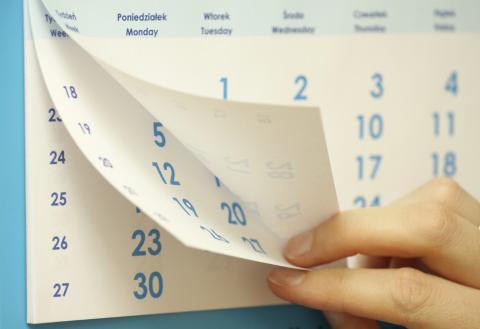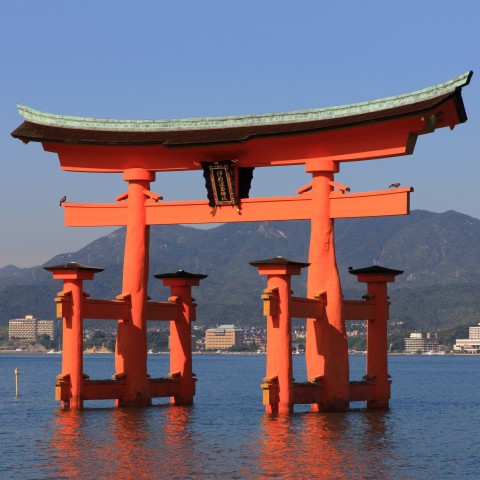
Have you gotten bored of learning the basic Japanese grammar rules, reviewing beginner-level words, and practicing beginner phrases? Then it’s time to level up and start learning intermediate Japanese phrases!
Once you’re confident in your ability to master the beginner levels (N5 and N4) of the JLPT (Japanese-Language Proficiency Test), you can aim to achieve the intermediate level (N3 and above). Achieving this level of proficiency will allow you to cope with more complicated everyday situations while in Japan. The intermediate level is surely more difficult, requiring continuous effort and patience; however, it’s also an enjoyable stage of learning as you’ll start being able to understand more complex things and express more subtle feelings.
In this article, we’ll introduce a list of the most useful intermediate Japanese phrases for various situations. Whether you want to talk about past events, change plans, or make recommendations, this useful phrase list here at JapanesePod101.com covers it all!

Knowing some intermediate-level phrases will make your conversations more enjoyable.
 Table of Contents
Table of Contents
- Talking About Past Events
- Making and Changing Plans
- Explaining and Giving Reasons
- Making Recommendations and Complaints
- Reaction Phrases for Everyday Conversations
- Etiquette Phrases for Social and Business Settings
- Conclusion
1. Talking About Past Events
When you first start learning Japanese, you primarily study and use the present tense. However, talking about the past and the future is inevitable in our daily lives; for example, we make plans for the weekend with friends and tell stories about our past experiences.
When it comes to grammatical tense, Japanese is much simpler than other languages such as English or the Romance languages. This is because Japanese does not have a future tense nor any perfect tenses. Things concerning the future are expressed using the present tense and a time-indicating word, such as “later” or “tomorrow.” It is also relatively easy to use the past tense in Japanese because there is no verb conjugation according to “how far” in the past something took place.
The only thing you need to pay attention to is the formality level you use (casual vs. formal) and 敬語 (Keigo), the Japanese honorific language. For each of the following intermediate phrases in Japanese, we have included both the casual version and the polite version.
1.
[Casual] ___はさっき終わったよ。
___ wa sakki owatta yo.
[Polite] ___はさっき終わりました
___ wa sakki owarimashita.
[English] ___ has just finished.
2.
[Casual] 今日は忙しくてとても疲れた。
Kyō wa isogashikute totemo tsukareta.
[Polite] 今日は忙しくてとても疲れました。
Kyō wa isogashikute totemo tsukaremashita.
[English] Today was busy, and I got really tired.
3.
[Casual] 今日は幸運/不運な日だった。
Kyō wa kōun/fūn na hi datta.
[Polite] 今日は幸運/不運な日でした。
Kyō wa kōun/fūn na hi deshita.
[English] Today was a lucky/unlucky day.
4.
[Casual] 昨日のパーティーは楽しかったよ。
Kinō no pātī wa tanoshikatta yo.
[Polite] 昨日のパーティーは楽しかったです。
Kinō no pātī wa tanoshikatta desu.
[English] The party yesterday was fun. (I enjoyed the party yesterday.)
5.
[Casual] 去年の夏にハワイへ旅行した。
Kyonen no natsu ni Hawai e ryokō shita.
[Polite] 去年の夏にハワイへ旅行しました。
Kyonen no natsu ni Hawai e ryokō shimashita.
[English] I traveled to Hawaii last summer.
6.
[Casual] 私はこの会社で5年前から働いている。
Watashi wa kono kaisha de go-nen mae kara hataraite iru.
[Polite] 私はこの会社で5年前から働いています。
Watashi wa kono kaisha de go-nen mae kara hataraite imasu.
[English] I have been working for this company for five years.
7.
[Casual] 昔「ポチ」という犬を飼っていた。
Mukashi “Pochi” to iu inu o katte ita.
[Polite] 昔「ポチ」という犬を飼っていました。
Mukashi “Pochi” to iu inu o katte imashita.
[English] I used to have a dog called Pochi (in the past).
8.
[Casual] 子供の頃は東京に住んでいた。
Kodomo no koro wa Tōkyō ni sunde ita.
[Polite] 子供の頃は東京に住んでいました。
Kodomo no koro wa Tōkyō ni sunde imashita.
[English] I used to live in Tokyo when I was a kid.

去年の夏にハワイへ旅行しました。(Kyonen no natsu ni Hawai e ryokō shimashita.)
“I traveled to Hawaii last summer.”
2. Making and Changing Plans
As mentioned in the section above, we can use the present tense to express the future by using a time-indicating word. This is the structure we use when making or changing plans.
In order to form a question, you only have to add a question mark to the end of a casual sentence or か (ka) to the end of a formal sentence. In Japanese, the subject is often omitted when it’s obvious who is speaking or whom you are talking to.
Below are a few examples of how to use this type of intermediate Japanese sentence structure to talk about plans.
1.
[Casual] 来週空いている日ある?
Raishū aite iru hi aru?
[Polite] 来週空いている日ありますか。
Raishū aite iru hi arimasu ka.
[English] Do you have a free day next week?
2.
[Casual] 来月都合の良い日はいつ?
Raigetsu tsugō no yoi hi wa itsu?
[Polite] 来月都合の良い日はいつですか。
Raigetsu tsugō no yoi hi wa itsu desu ka.
[English] When is your convenient day next month? (When is the best day next month for you?)
3.
[Casual] お寿司食べに行く?
O-sushi tabe ni iku?
[Polite] お寿司食べに行きませんか。
O-sushi tabe ni ikimasen ka.
[English] Would you like to go eat sushi?
4.
[Casual] 彼氏/彼女も連れて来ていい?
Kareshi/ kanojo mo tsurete kite ii ?
[Polite] 彼氏/彼女も連れて来ていいですか。
Kareshi/ kanojo mo tsurete kite ii desu ka.
[English] Can I bring my boyfriend/girlfriend?
5.
[Casual] スケジュールを確認してまた連絡するよ。
Sukejūru o kakunin shite mata renraku suru yo.
[Polite] スケジュールを確認してまた連絡しますね。
Sukejūru o kakunin shite mata renraku shimasu ne.
[English] I will let you know after checking my schedule.
6.
[Casual] 来週にスケジュールを変更できる?
Raishū ni sukejūru o henkō dekiru?
[Polite] 来週にスケジュールを変更できますか。
Raishū ni sukejūru o henkō dekimasu ka.
[English] Is it possible to reschedule for next week?
7.
[Casual] 今週の金曜日にオンライン会議で詳細を話そう
Konshū no kin-yōbi ni onrain kaigi de shōsai o hanasō.
[Polite] 今週の金曜日にオンライン会議で詳細を話しましょう。
Konshū no kin-yōbi ni onrain kaigi de shōsai o hanashimashō.
[English] Let’s discuss the details during the online meeting this Friday.

来週にスケジュールを変更できますか。(Raishū ni sukejūru o henkō dekimasu ka.)
“Is it possible to reschedule for next week?”
3. Explaining and Giving Reasons
If you’re a native speaker of English or a Romance language, you may feel that giving reasons in Japanese is a bit awkward due to the Japanese word order and sentence structure. Contrary to English and many other languages, we usually mention the reason before the action or event.
For example:
[English] I drank a glass of water because it was hot.
(a person’s action) (the reason why)
[Japanese] 暑かったので、 グラス1杯の水を飲みました。
Atsukatta node, gurasu ippai no mizu o nomimashita.
(the reason why) (a person’s action)
1.
[Polite] アレルギーがあるので卵を食べられません。
Arerugī ga aru node tamago o taberaremasen.
[English] I can’t eat eggs because I have an allergy.
2.
[Polite] 雨が降っているので、今日の花火大会は中止になりました。
Ame ga futte iru node, kyō no hanabi taikai wa chūshi ni narimashita.
[English] Today’s fireworks festival has been canceled because it is raining.
3.
[Polite] 風邪をひいて頭痛がひどいです。そのため、今日は早く帰ります。
Kaze o hiite zutsū ga hidoi desu. Sono tame, kyō wa hayaku kaerimasu.
[English] I caught a cold, and I have a severe headache. For that reason, I will go home early today.
4.
[Polite] 午後に会議が予定されています。このため、会議室は使用できません。
Gogo ni kaigi ga yotei sarete imasu. Kono tame, kaigishitsu wa shiyō dekimasen.
[English] A meeting is scheduled in the afternoon. Therefore, the meeting room is not available.
5.
[Polite] 最近少し太ったのでダイエットをしています。
Saikin sukoshi futotta node daietto o shite imasu.
[English] I’m on a diet because I’ve gained a little weight recently.
6.
[Polite] 終電を逃してしまったため、歩いて家に帰りました。
Shūden o nogashite shimatta tame, aruite ie ni kaerimashita.
[English] I missed the last train, so I walked back home.
7.
[Polite] 私がこの車を選んだのには三つ理由があります。
一つ目はデザイン、二つ目は機能性、そして最後は価格が理由です。
Watashi ga kono kuruma o eranda no ni wa mittsu riyū ga arimasu.
Hitotsu-me wa dezain, futatsu-me wa kinōsei, soshite saigo wa kakaku ga riyū desu.
[English] There are three reasons why I chose this car.
Firstly, because of its design; secondly, its functionality; and lastly, its price.

午後に会議が予定されています。このため、会議室は使用できません。
(Gogo ni kaigi ga yotei sarete imasu. Kono tame, kaigishitsu wa shiyō dekimasen.)
“A meeting is scheduled in the afternoon. Therefore, the meeting room is not available.”
4. Making Recommendations and Complaints
Giving your opinion by recommending or complaining about something is a good way to share and exchange ideas in a conversation. 口コミ情報, or word-of-mouth information, is somewhat reliable as it comes from one’s firsthand experience. Sharing experiences and insights is not only useful when deciding what to buy or try, but it also creates rapport between speakers.
The following are frequently used words and phrases for making recommendations and complaints.
- おすすめ (osusume) = recommendation [noun]
- おすすめする (osusume suru) = to recommend [verb]
- おすすめしない (osusume shinai) = not to recommend [verb]
1.
[Casual] この映画は今年見た中で一番面白いよ。
Kono eiga wa kotoshi mita naka de ichi-ban omoshiroi yo.
[Polite] この映画は今年見た中で一番面白いです。
Kono eiga wa kotoshi mita naka de ichi-ban omoshiroi desu.
[English] This movie is the most interesting I’ve seen this year.
2.
[Casual] 広島に旅行するなら、厳島神社に行くことをおすすめするよ。
Hiroshima ni ryokō suru nara, Itsukushima Jinja ni iku koto o osusume suru yo.
[Polite] 広島に旅行するなら、厳島神社に行くことをおすすめします。
Hiroshima ni ryokō suru nara, Itsukushima Jinja ni iku koto o osusume shimasu.
[English] If you’re traveling to Hiroshima, I recommend you go to Itsukushima Shrine.
3.
[Casual] 本当においしいお寿司を食べたいなら、銀座の次郎が有名だよ。
Hontō ni oishii o-sushi o tabetai nara, Ginza no Jirō ga yūmei da yo.
[Polite] 本当においしいお寿司を食べたいなら、銀座の次郎が有名です。
Hontō ni oishii o-sushi o tabetai nara, Ginza no Jirō ga yūmei desu.
[English] If you want to eat really delicious sushi, Jiro in Ginza is famous.
4.
[Casual] この携帯電話の充電器はメーカーの純正を使った方が良いよ。
Kono keitai denwa no jūdenki wa mēkā no junsei o tsukatta hō ga ii yo.
[Polite] この携帯電話の充電器はメーカーの純正を使った方が良いですよ。
Kono keitai denwa no jūdenki wa mēkā no junsei o tsukatta hō ga ii desu yo.
[English] It’s better to use the manufacturer’s genuine charger for this mobile phone.
5.
[Casual] あのホテルはカスタマーサービスが最悪だよ。
Ano hoteru wa kasutamā sābisu ga saiaku da yo.
[Polite] あのホテルはカスタマーサービスが最悪です。
Ano hoteru wa kasutamā sābisu ga saiaku desu.
[English] That hotel has the worst customer service.
6.
[Casual] あそこは値段が高い割においしくないので、おすすめしないよ。
Asoko wa nedan ga takai wari ni oishikunai node, osusume shinai yo.
[Polite] あそこは値段が高い割においしくないので、おすすめしません。
Asoko wa nedan ga takai wari ni oishikunai node, osusume shimasen.
[English] I don’t recommend that place because it’s not delicious for the expensive price.
7.
[Casual] 商品が1回使ってすぐ壊れた。このショップからは二度と購入しない。
Shōhin ga ikkai tsukatte sugu kowareta. Kono shoppu kara wa ni-do to kōnyū shinai.
[Polite] 商品が1回使ってすぐ壊れました。このショップからは二度と購入しません。
Shōhin ga ikkai tsukatte sugu kowaremashita. Kono shoppu kara wa ni-do to kōnyū shimasen.
[English] The product broke immediately after I used it once. I will never buy anything from this shop.

広島に旅行するなら、厳島神社に行くことをおすすめします。
(Hiroshima ni ryokō suru nara, Itsukushima Jinja ni iku koto o osusume shimasu.)
“If you’re traveling to Hiroshima, I recommend you go to Itsukushima Shrine.”
5. Reaction Phrases for Everyday Conversations
You’ll also need some intermediate Japanese phrases for reacting to others’ statements. Knowing various ways to reply to someone will help make your conversations more colorful and enjoyable. Below, we have included a few short conversation samples using common reaction phrases.
1.
A:
昨日のパーティーは楽しかったね。
Kinō no pātī wa tanoshikatta ne.
The party last night was fun.
B:
うん、みんなに会って話せて良かったよ!
Un, minna ni atte hanasete yokatta yo!
Yeah, I was glad to meet and talk to everyone!
2.
A:
来週空いている日ある ?
Raishū aite iru hi aru?
Do you have a free day next week?
B:
土曜日なら一日中空いてるよ。
Do-yōbi nara ichi-nichijū aite ru yo.
I’m free all day next Saturday.
3.
A:
この映画は今年見た中で一番面白いよ。
Kono eiga wa kotoshi mita naka de ichi-ban omoshiroi yo.
This movie is the most interesting I’ve seen this year.
B:
そうなんだ。Netflixで配信されたら見てみるよ。
Sō nan da. Nettofurikkusu de haishin saretara mite miru yo.
Oh yeah? I’ll watch it when it’s released on Netflix.
4.
A:
来週にスケジュールを変更できますか。
Raishū ni sukejūru o henkō dekimasu ka.
Is it possible to reschedule for next week?
B:
はい、大丈夫です。来週の月曜日から金曜日の午後なら調整できます。
Hai, daijōbu desu. Raishū no getsu-yōbi kara kin-yōbi no gogo nara chōsei dekimasu.
Yes, it’s okay. I can make adjustments in the afternoon from next Monday to Friday.
5.
A:
アレルギーがあるので卵を食べられません。
Arerugī ga aru node tamago o taberaremasen.
I can’t eat eggs because I have an allergy.
B:
卵を使用していないメニューはこちらです。
Tamago o shiyō shite inai menyū wa kochira desu.
Here is the menu that does not contain eggs.
6.
A:
あのホテルはカスタマーサービスが最悪です。
Ano hoteru wa kasutamā sābisu ga saiaku desu.
That hotel has the worst customer service.
B:
本当ですか?有名なホテルなのに残念ですね。
Hontō desu ka? Yūmei na hoteru na noni zannen desu ne.
Really? It’s a shame, though; it’s a famous hotel.

小麦粉を使用していないメニューはこちらです。
(Komugiko o shiyō shite inai menyū wa kochira desu.)
“Here is the menu that does not contain wheat.”
6. Etiquette Phrases for Social and Business Settings
Japanese has some very unique and polite expressions that are frequently used in social and business settings. It’s good to know such phrases even if you’re a traveler to Japan, as you’ll hear them often in restaurants, shops, and hotels.
1.
[Polite] いらっしゃいませ。
Irasshaimase.
[English] Welcome. (Staff members of shops and restaurants will say this to customers.)
2.
[Very Polite] 少々お待ち下さいませ。
Shōshō o-machi kudasai mase.
[English] Please wait for a moment.
3.
[Very Polite] 大変お待たせしました。
Taihen o-matase shimashita.
[English] Thank you very much for your patience. (Literally: I made you waiting for long time.)
4.
[Very Polite] ごゆっくりお過ごしください。
Go-yukkuri o-sugoshi kudasai.
[English] Please have a relaxed time.
5.
[Very Polite] 何かご質問がありましたらお知らせください。
Nani ka go-shitsumon ga arimashitara o-shirase kudasai.
[English] Please let us know if you have any questions.
6.
[Very Polite] お忙しい中お時間をいただき、どうもありがとうございます。
O-isogashii naka o-jikan o itadaki, dōmo arigatō gozaimasu.
[English] Thank you very much for your time while you are busy.
7.
[Very Polite] お返事お待ちしております。
O-henji o-machi shite orimasu.
[English] I look forward to hearing from you.
8.
[Very Polite] お気をつけていってらっしゃいませ。
O-ki o tsukete itterasshai mase.
[English] Please take care and have a safe trip.

少々お待ち下さいませ。
(Shōshō o-machi kudasai mase.)
“Please wait for a moment.”
7. Conclusion
In this article, we introduced the most useful intermediate Japanese phrases for various situations, including:
- Talking about past events
- Making and changing plans
- Explaining and listing reasons
- Making recommendations and complaints
- Reacting to others during a conversation
- Being polite in social and business settings
With these intermediate phrases, you’ll be able to have more complex conversations and explain what you want to say in more detail.
If you would like to learn more about the Japanese language, you’ll find a lot more helpful content on JapanesePod101.com. This is the best place to learn Japanese online, providing a variety of free lessons designed to help you improve your Japanese-language skills.
If you’re at the intermediate level in your Japanese studies, the following articles are a great place to start:
And there’s so much more! Be a faster learner and enjoy studying Japanese at JapanesePod101.com!
Before you go, let us know in the comments if there are any specific topics or situations you’d like to learn Japanese phrases for. We’d be glad to help, and we look forward to hearing from you!










